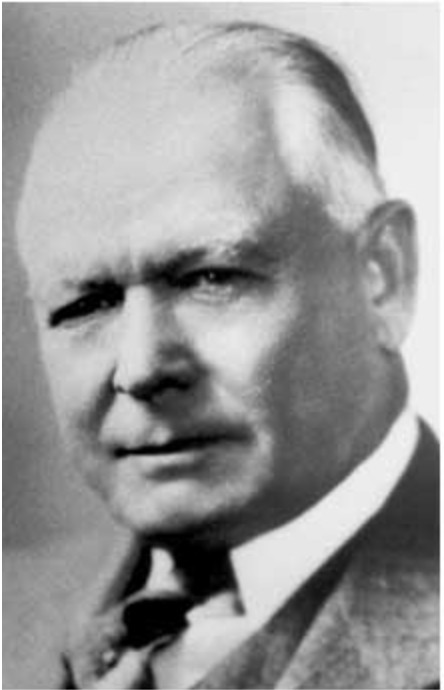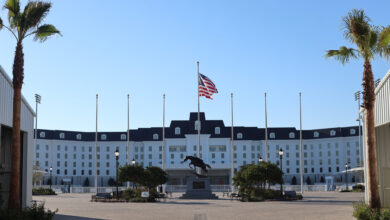For 37 years, Ocala’s Nathan Mayo was perhaps the most powerful and influential person in Florida politics. He served as Florida’s Commissioner of Agriculture from 1923 until his death in 1960 and made his mark on a growing state, likely more than even the 11 different governors with whom he served.
Born in 1876, Mayo moved with his family from North Carolina to Summerfield when he was 10 years old, and in 1913 entered politics, earning a seat on the Marion County Commission. In 1921, Mayo was elected to the Florida House of Representatives where he caught the eye of Gov. Cary Hardee, who in 1923 appointed Mayo as commissioner of agriculture. Little could he have known that he would remain in that post longer than anyone before or since.
 When he took over as commissioner of agriculture in 1923, around 1 million people called Florida home – most of them earning a living in the agriculture sector and facing numerous problems as growers, which Mayo would dedicate his life to solving.
When he took over as commissioner of agriculture in 1923, around 1 million people called Florida home – most of them earning a living in the agriculture sector and facing numerous problems as growers, which Mayo would dedicate his life to solving.
Mayo was known for his aggressive means to solving many of the agricultural difficulties facing the state as he was himself a farmer of varying staples, including citrus and cotton. Among his accomplishments, Mayo advocated for the enactment of higher maturity standards for fruit and established citrus inspection in order to enforce these new higher standards. It was all part of helping to bring Florida agriculture and even tourism to the world stage. As such, Mayo published thousands of booklets advertising Florida’s resources to stimulate advertising and tourism, making him de facto the state’s first advertising commissioner.
Mayo’s list of accomplishments are long and varied. He supported tick eradication in the 1920s and ‘30s, which helped make livestock production profitable in Florida. He established the State Marketing Board that organized a system of state farmers’ markets, which were then copied throughout the country. He promoted the construction of crop and livestock pavilions throughout the state, helped to establish the Florida Citrus Commission and encouraged the development of the frozen concentrate industry.
Mayo devised mobile labs for inspection and scientific analysis of various farm products and supplies. In short, he helped usher in the era of modern agriculture.
Mayo’s tenure as commissioner of agriculture came during an era when that role was likely more important than the governor’s. In addition to the inspection of agricultural products, he also oversaw the state Highway Patrol system and the state prison system, in which he drew some criticism for abuses that had taken place. It was Mayo who was instrumental in bringing the women’s state prison to Lowell.
Throughout his long career, Mayo was celebrated as a staunch defender of agriculture, but was not without his critics due to many of the draconian measures he championed. One of his biggest contributions, though, may have been in what he refused to do – sign Gov. John Martin’s $20 million bond issue to finance draining of the Everglades.
Throughout a career that included many triumphs, Mayo in the end was known mainly for his promotion of the state of Florida, earning him the nickname “Mr. Florida.” The Miami Herald called him the “No.1 booster of Florida farm products” and “one of the state’s best super salesmen.”
When rumors circulated in 1959 that Mayo would soon retire from his position, a reporter from the Tampa Tribune wrote that without Mayo, “… Tallahassee will feel somewhat as if it awoke one morning to find the statehouse rotunda gone.”
He was set to retire in 1961, but in April of 1960 he passed away due to lung cancer at the age of 83. At the time of his death, Mayo’s farm and store in Summerfield were still in operation.
In 1964, Mayo was inducted into the Florida Citrus Hall of Fame and in 1980 he was part of the first class of inductees into the Florida Agricultural Hall of Fame.






